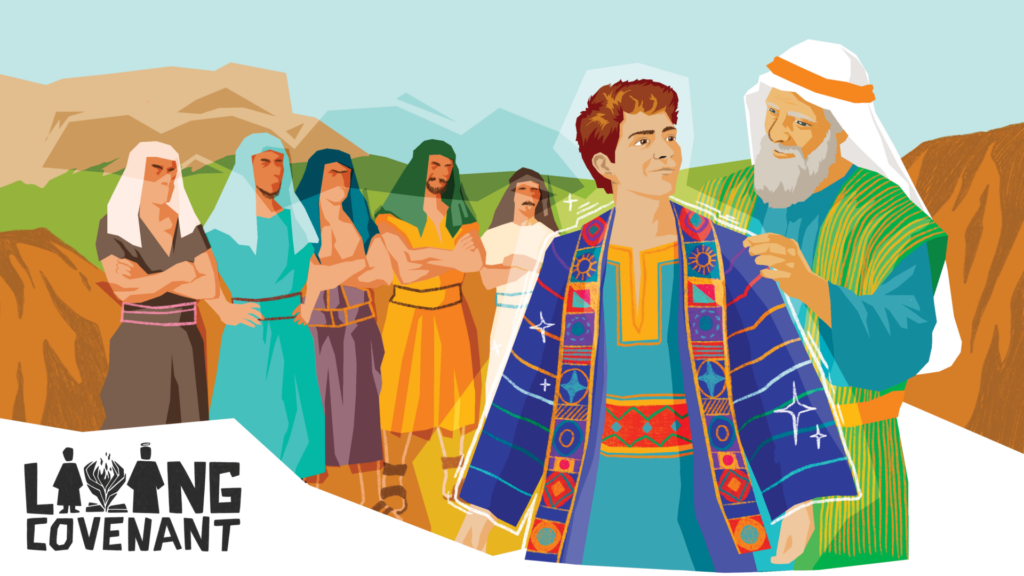In the last chapter of the Book of Job we find a most interesting example of intercessory prayer.
At the beginning of the book we find Satan challenging God, claiming that Job served Him because God protected him, so he was really no better than any other selfish person on this earth which Satan claimed as his domain. God accepted Satan’s challenge and allowed him to destroy Job’s possessions and family (Job 1:11). When, despite this affliction, Job remained true to God, Satan insisted that if Job’s health was taken away he would turn against God. God again responded, giving Satan permission to afflict Job’s body. Again Job proved loyal to God amid his pain and suffering (Job 2:7-10).
Then Job’s friends came to “comfort” him, but all they did was claim that his suffering must be the result of his sins. Most of the book of Job is the account of Job’s attempts to defend himself against their accusations.
Finally, in Job 38:1 God intervenes and asks Job some questions to reveal Job’s ignorance. After realising how little he knows of the greatness of God, Job responds by acknowledging his lack of understanding and concludes by saying, “Therefore I abhor myself, and repent in dust and ashes” (Job 42:6).
God then rebukes Eliphaz the Temanite, the leader of Job’s friends, for claiming Job’s sufferings were caused by his sins. Then, instead of telling Eliphaz to bring an offering and kneel before Him in repentance, God tells him to bring an offering and have Job pray for them. He promises to accept Job’s prayer for his friends, saying that because of Job’s prayer He will not punish them as they deserve. Then, when Job prayed for his friends, God reversed his afflictions and gave him twice as much as he had before (Job 42:9,10).
Now that we have set the stage for the events recorded in Job 42, let us look in detail at what actually transpired.
This command of God for Job to pray for his friends seems a strange way of dealing with the situation. Why did God involve Job, asking him to pray for his friends, in what was essentially an issue between God and Job’s three friends?
I believe we need to see this story in the context of the great controversy between Christ and Satan.
When Satan rebelled against his Creator, God was faced with a dilemma. If Satan was immediately destroyed, the inhabitants of the universe would be tempted to serve Him from fear, whereas God accepts only love as the motivation for serving Him. His only viable alternative was to allow Satan to demonstrate his form of government. Satan claimed that created beings did not need God’s law. They could be guided by their own self-centred wisdom. When Adam and Eve sinned, Satan claimed this earth as his domain, and God decided to allow him to demonstrate his form of government in this earth. But God loved humans, and was not willing to simply abandon them to Satan’s control, so He implemented his plan of salvation, by which, through the sacrifice of His Son, He made it possible for humans to choose whose side they would be on in the struggle between God and Satan. Thus this earth became the battleground for the conflict between God and Satan.
However, because God was the infinite all-powerful Creator, and Satan was only a created being, the only way to ensure a fair fight was for God to set up the rules of engagement by which the conflict could be conducted. These rules of engagement had to be seen by the watching universe to be fair and just, giving Satan the opportunity to work out his plans. But Satan is more powerful than humans, so right at the beginning God put enmity between humanity and Satan (Genesis 3:15), so that humans could have a chance to refuse Satan’s rule and serve God if they chose to do so.
We don’t know what all these rules of engagement are, but we can deduce some of them from the stories of how the conflict has been played out throughout Bible history. And the story of Job is one that reveals how the conflict works. From this story we learn that God protects His people who are faithful to Him, but He is prepared to change the rules when challenged to do so. That is why Job had to suffer to demonstrate to the watching universe that he was not serving God only for selfish reasons. Satan’s contention was that everyone is motivated by selfish concerns, as love of self is the central pillar of his system.
Another of these rules is revealed when God told Eliphaz to bring an offering and have Job pray for him and his friends. Satan must have had the right to claim control of Eliphaz and his friends because they had allowed him to use them to defame God and Job, but there must be a provision that when one of God’s people prays to Him to intervene in the lives of those being attacked or used by Satan, God is allowed to intervene and drive Satan away from those he is harassing.
So here is revealed the vital importance of intercessory prayer. If Satan is harassing a person, and nobody has interest or concern enough to pray for that individual, then Satan can claim the right to do whatever he wants to coerce that person into coming under his control. But if one or more of God’s people prays for that individual and asks God to intervene and rescue them from Satan’s attacks, then God has the right to command Satan to leave.
Just think of how important it is that we as God’s people exercise the free will He has given us to ask Him to drive back the power of Satan in the lives of those around us when we sense that Satan is trying to attack them. And it may well be that the more of us who pray for any given individual, the more God is free to intervene in the life of that person.
And just as when Job prayed for his friends God gave him back twice as much as he had before, so in the lives of those of God’s people who pray for others, a great blessing from the Holy Spirit is poured out, enabling them to accomplish great things for God.
Allen Sonter writes from Taree, NSW.






